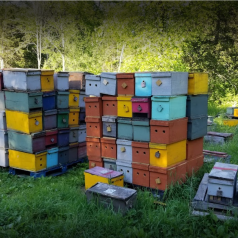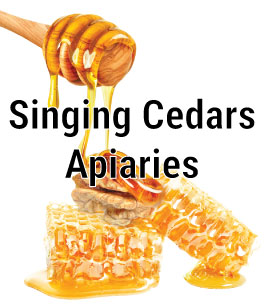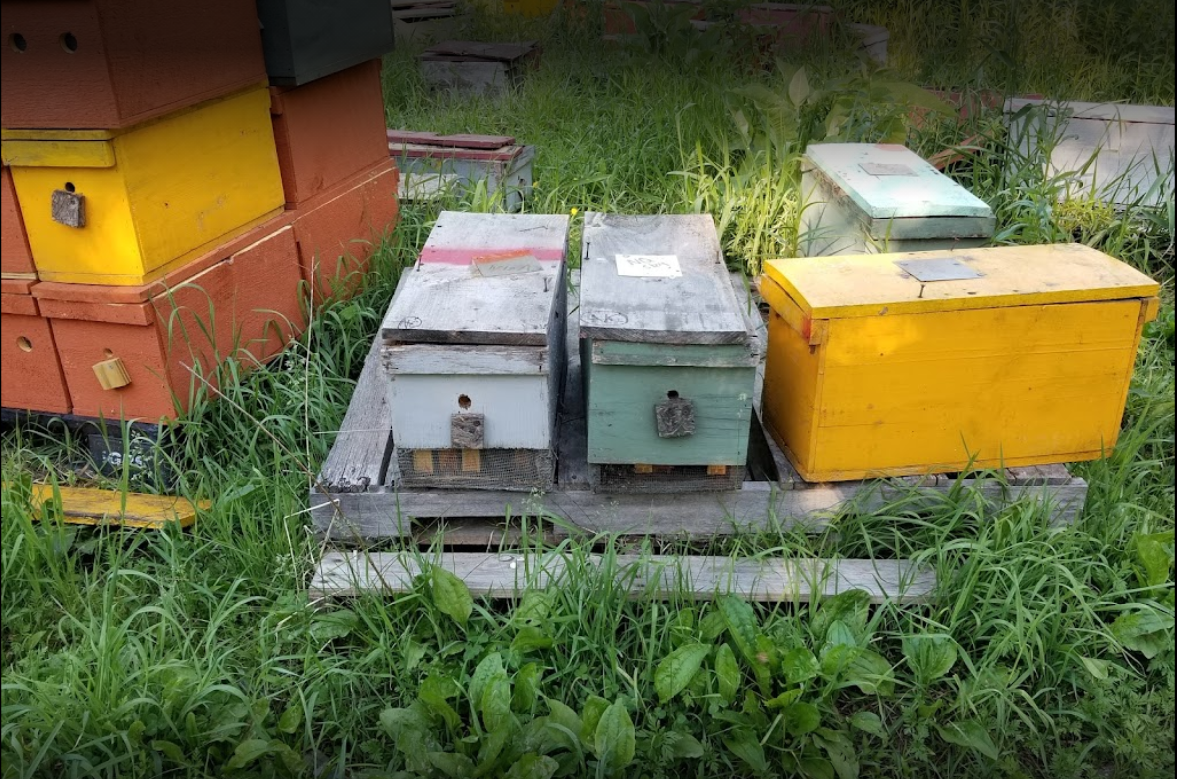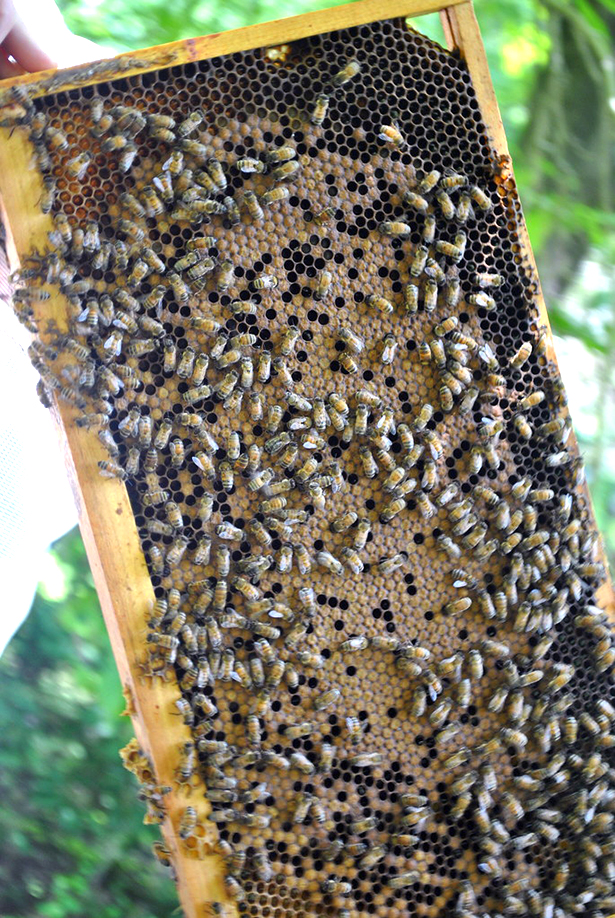
Spotlight on Singing Cedars Apiaries
This month we’re shining an extra bright Member Deals Spotlight on Singing Cedars Apiaries! From October 10th – 16th, Co-op member-owners can enjoy a 20% discount on all of Singing Cedars Apiaries’ honey products. Read on to learn more about this family-owned business and their commitment to providing you the best honey the Champlain Valley has to offer.

Singing Cedars Apiaries is a family operation started by native Abenaki Roland (Wants To Be Chief) and his wife Deborah (Little Cloud Big Storm) in the basement of their teepee in 1971. According to their website, they specialize in producing pure raw honey for retail sale, and nucleus colonies and queens both for their own enterprise and to sell to other beekeepers. A feature in American Bee Journal also points out that they sell their beeswax to candle makers and crafters, maximizing the use of every material their bees produce. In true family fashion, Roland, Deborah, and their four children developed this apiary which now manages over 1100 colonies with their grandchildren and Son-in-Laws Christopher (Hates to Bee Sticky) and Tim (Aboriginee) doing much of the work. Deborah was heavily involved with the beekeeping in the beginning, though now she has her hands full managing the office handling all of the orders of honey, queens, and nucs.

Over the years they’ve established authentic relationships with each of the local retail outlets that offer their honey. Roland points out that the customers they’ve served for 20-plus years, with whom they have developed strong working relationships are the foundation of their stable business. Their bees are spread out over both sides of Lake Champlain in both Vermont and New York. Their forage primarily consists of white Dutch clover, honeysuckle, basswood, goldenrod, and asters. In a good year, they’re able to produce 100 – 150 pounds of honey per hive!

Singing Cedars offers a variety of honey products, including creamed honey flavored with natural oils. Their honey is unpasteurized to retain all the natural goodness nature provided in its enzymes and pollen, and unfiltered yet strained to remove any wax and propolis sometimes associated with raw honey to provide a rich smooth product for your enjoyment.

